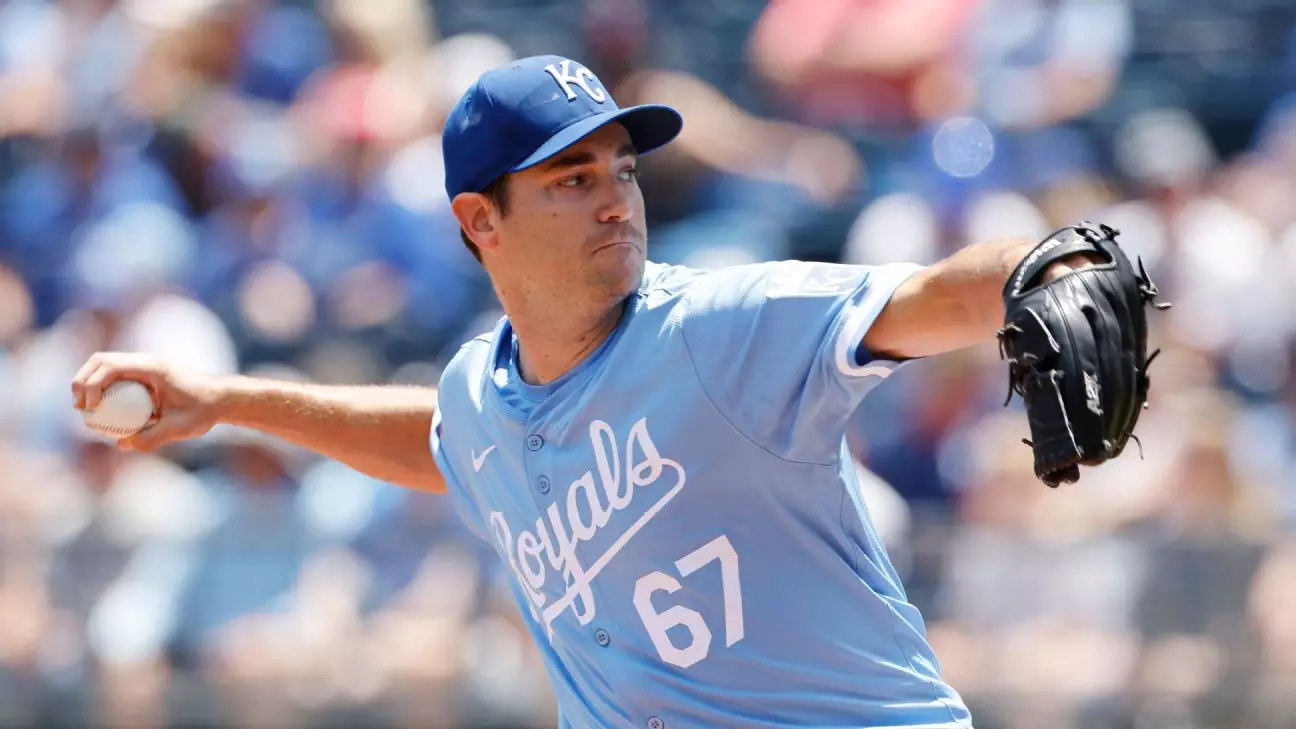In professional sports, individual performances often steal the spotlight, but the true catalyst for sustained success lies in the intricate web of relationships between players, management, and fans. This dynamic was vividly illustrated through the recent appreciation shown by Royals first baseman Vinnie Pasquantino for pitcher Seth Lugo. Pasquantino’s unwavering support signals a deeper understanding: a team’s chemistry and mutual respect are pivotal for climbing the ranks, especially when confronting a competitive landscape like Major League Baseball’s wild-card race.
Lugo’s performance in an intense, sweltering environment exemplifies resilience, but it’s his commitment to staying in Kansas City that underscores something even more vital—player loyalty can be a game-changer. When teammates vocally endorse their colleagues, it fosters a sense of unity that transcends the scoreboard. Such cohesion can inspire confidence, motivate improved play, and ultimately reinforce a winning culture. For the Royals, cultivating this camaraderie could be the breakthrough they need to elevate beyond mediocrity.
The story also highlights how individual sentiment—Lugo’s expressed desire to remain with Kansas City—can influence management’s decisions. A player’s openness about loyalty not only boosts morale but also puts subtle pressure on the front office to weigh those relationships heavily in trade considerations. In essence, fostering an environment where players feel heard and valued may tip the balance toward retaining core talent, which is often more valuable than acquiring high-profile rentals just for a playoff push.
Trade Rumors and the Thin Line Between Strategy and Sentimentality
As the trade deadline looms, the conversation surrounding Lugo’s potential departure encapsulates a broader debate: should teams prioritize immediate gains or nurture long-term stability? While from a strategic standpoint, moving a free-agent-to-be like Lugo could yield impressive prospects or draft capital, emotional investment complicates the equation. Pasquantino’s plea for Lugo to stay encapsulates an important truth—players, and by extension teams, thrive when loyalty and trust are woven into the fabric of their culture.
Given Kansas City’s status as a middle-of-the-road team, their window for a significant run hinges on balancing short-term moves with long-term vision. Trading Lugo might bring immediate returns, yet it risks destabilizing a burgeoning locker room chemistry that makes the team competitive and resilient. Conversely, holding onto key figures like Lugo could serve as the cornerstone for sustained growth—if the team can improve its overall consistency. This nuanced approach requires disciplined management that recognizes the intangible value of chemistry and the importance of nurturing internal talent.
Lugo’s performance on an open day at Wrigley Field demonstrates just how competitive he remains. His ability to navigate a hitter-friendly environment with poise suggests he has the talent necessary for a postseason push, regardless of rumors swirling around his future. Players with his caliber often serve as the backbone of a team’s identity, and losing him could disrupt that delicate balance. For the Royals, the decision becomes not just about the trade value but about preserving their essence as a club.
The Broader Implication: Leadership in Uncertain Times
In an era where the sports industry is defined by rapid changes and front-office maneuvering, strong leadership becomes paramount. Manager Matt Quatraro’s comments about the unpredictability of the season highlight a crucial mindset: adaptability and resilience are the best strategies in a fluctuating landscape. Whether the Royals choose to make bold trades or stay the course, their trajectory depends on their capacity to maintain focus amidst uncertainty.
Lugo’s statement about controlling what he can control reflects a mature, team-first attitude that managers should cultivate. This mindset not only inspires individual accountability but also promotes a culture where players operate with clarity and purpose, regardless of external distractions like trades or rumors. For the Royals to succeed, they must mirror this philosophy—embracing the unpredictability as an opportunity rather than a threat.
The upcoming homestand offers a pivotal moment for the Royals. Their ability to post winning streaks, stay competitive in the wild-card race, and foster internal loyalty could determine whether they remain on the fringes or break through to postseason prominence. The emphasis should be on leveraging what they have—building confidence, reinforcing relationships, and maintaining focus on collective goals—rather than overreacting to transactional narratives.
The Royals’ narrative exemplifies a broader truth in professional sports: talent alone does not secure victory; it’s the blend of skill, chemistry, loyalty, and leadership that forges a resilient team. Lugo’s performance and Pasquantino’s support underscore the importance of valuing human connections within a competitive framework. As the trade deadline approaches, the decision to retain or move a player extends beyond mere statistics—it touches the core of what makes a team truly formidable. For Kansas City, embracing this holistic approach could be the key to transforming potential into lasting success.


Leave a Reply